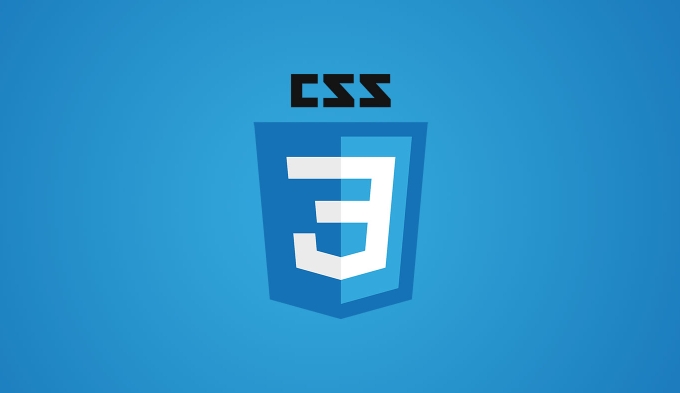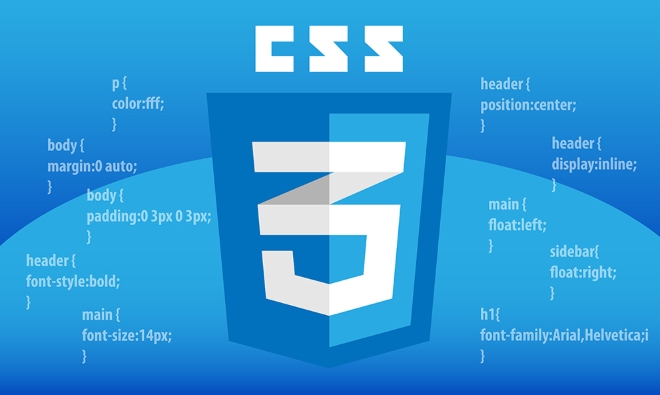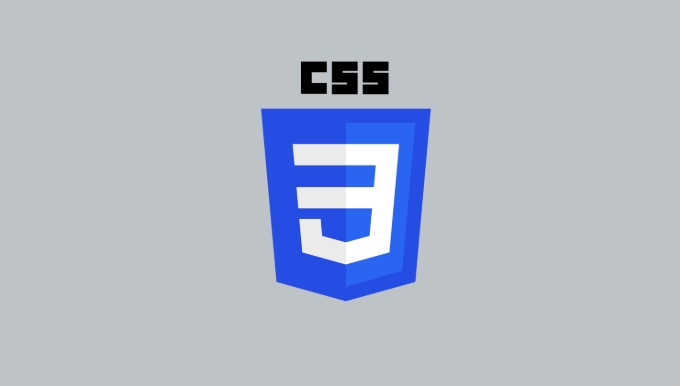BEM and SMACSS are two structured CSS methods that are suitable for different project requirements. BEM (Block Element Modifier) uses naming rules to clarify component relationships, solve class name conflicts, maintenance difficulties and other problems, and is suitable for component libraries or modular projects; SMACSS (Scalable and Modular Architecture for CSS) structurally divides styles into Base, Layout, Module, State and Theme, which is suitable for hierarchical management of large websites. The two can be used in combination, and the key is to maintain consistency, avoid over-necking, rationalize the use of tools and provide training documents to improve code maintainability and team collaboration efficiency.

Writing CSS may seem simple, but as the project grows bigger, it is easy to get out of control when maintaining it. At this time, it becomes necessary to use a structured method. BEM and SMACSS are two more popular ways of organizing CSS. They are not frameworks, but more like "behavioral norms" when writing styles. They can help you make the code clearer and easier to maintain.

What is BEM and what problems does it solve?
The full name of BEM is Block Element Modifier, and its core idea is to express the relationship between components through naming rules.

For example, you have a button component:
.btn {}
.btn--primary {}
.btn__text {}-
.btnis Block (block) -
.btn__textis an Element (element), which belongs to btn -
.btn--primaryis a Modifier (modifier), representing a variant of btn
The benefits of writing this way are obvious:

- You can tell which module it belongs to at a glance, and it is not easy to conflict
- It is easier to locate relevant parts after changing styles in the later stage
- When teamwork, the style is unified and there will be no variety of naming methods.
But it should be noted that the naming of BEM will be a little lengthy, and if your project is not big or pursues a minimalist style, it may not be suitable.
How does SMACSS organize styles?
SMACSS is the full name Scalable and Modular Architecture for CSS. It does not focus on naming specifications like BEM, but divides CSS into several categories from the overall structure:
- Base : basic styles, such as
body,input, andadefault style reset - Layout : Layout style, controls page structure, such as header, footer, grid layout
- Module : a reusable module, that is, components, such as buttons, cards, etc.
- State : State class, used to describe the performance of a module in different states, such as
.is-activeand.is-hidden - Theme : Theme-related styles (this part is less used in actual projects)
This classification method is more suitable for large websites or long-term maintenance projects, and can help you better plan the level and scope of responsibilities of CSS.
How to choose? BEM or SMACSS?
In fact, there is no standard answer to this question, the key depends on your project type and team habits.
- If you are doing component libraries, design systems, or need a highly modular structure, BEM is more suitable because it emphasizes the clear structure inside the component.
- If you are maintaining a complete website with complex layouts and multiple state changes, SMACSS is classified more organized .
Of course, it can also be used in combination, such as using SMACSS to divide the overall structure, and using BEM naming method at the component layer, which is both clear and flexible.
Some tips in practice
- Maintaining consistency is the most important thing : no matter which method it is, the key is that the whole project must be unified in style, otherwise it will add to chaos.
- Avoid over-necking : Even if you use a structured method, be careful not to write too deep nesting, as it will affect performance and readability.
- Reasonable use tools : Tools like Sass or PostCSS can help you organize your structure more easily, such as automatically merging duplicate classes, generating namespaces, etc.
- Training documents for newcomers : If you decide to adopt a certain method, it is best to have a simple instructional document so that new members can get started quickly.
Basically that's it. Structured CSS is not to show off your skills, but to make the code you write easier to understand by yourself or others. Choose the right method and stick to it, and the effect will naturally be reflected.
The above is the detailed content of Structuring CSS with methodologies like BEM or SMACSS. For more information, please follow other related articles on the PHP Chinese website!

Hot AI Tools

Undress AI Tool
Undress images for free

Undresser.AI Undress
AI-powered app for creating realistic nude photos

AI Clothes Remover
Online AI tool for removing clothes from photos.

Clothoff.io
AI clothes remover

Video Face Swap
Swap faces in any video effortlessly with our completely free AI face swap tool!

Hot Article

Hot Tools

Notepad++7.3.1
Easy-to-use and free code editor

SublimeText3 Chinese version
Chinese version, very easy to use

Zend Studio 13.0.1
Powerful PHP integrated development environment

Dreamweaver CS6
Visual web development tools

SublimeText3 Mac version
God-level code editing software (SublimeText3)

Hot Topics
 What is 'render-blocking CSS'?
Jun 24, 2025 am 12:42 AM
What is 'render-blocking CSS'?
Jun 24, 2025 am 12:42 AM
CSS blocks page rendering because browsers view inline and external CSS as key resources by default, especially with imported stylesheets, header large amounts of inline CSS, and unoptimized media query styles. 1. Extract critical CSS and embed it into HTML; 2. Delay loading non-critical CSS through JavaScript; 3. Use media attributes to optimize loading such as print styles; 4. Compress and merge CSS to reduce requests. It is recommended to use tools to extract key CSS, combine rel="preload" asynchronous loading, and use media delayed loading reasonably to avoid excessive splitting and complex script control.
 External vs. Internal CSS: What's the Best Approach?
Jun 20, 2025 am 12:45 AM
External vs. Internal CSS: What's the Best Approach?
Jun 20, 2025 am 12:45 AM
ThebestapproachforCSSdependsontheproject'sspecificneeds.Forlargerprojects,externalCSSisbetterduetomaintainabilityandreusability;forsmallerprojectsorsingle-pageapplications,internalCSSmightbemoresuitable.It'scrucialtobalanceprojectsize,performanceneed
 Does my CSS must be on lower case?
Jun 19, 2025 am 12:29 AM
Does my CSS must be on lower case?
Jun 19, 2025 am 12:29 AM
No,CSSdoesnothavetobeinlowercase.However,usinglowercaseisrecommendedfor:1)Consistencyandreadability,2)Avoidingerrorsinrelatedtechnologies,3)Potentialperformancebenefits,and4)Improvedcollaborationwithinteams.
 CSS Case Sensitivity: Understanding What Matters
Jun 20, 2025 am 12:09 AM
CSS Case Sensitivity: Understanding What Matters
Jun 20, 2025 am 12:09 AM
CSSismostlycase-insensitive,butURLsandfontfamilynamesarecase-sensitive.1)Propertiesandvalueslikecolor:red;arenotcase-sensitive.2)URLsmustmatchtheserver'scase,e.g.,/images/Logo.png.3)Fontfamilynameslike'OpenSans'mustbeexact.
 What is Autoprefixer and how does it work?
Jul 02, 2025 am 01:15 AM
What is Autoprefixer and how does it work?
Jul 02, 2025 am 01:15 AM
Autoprefixer is a tool that automatically adds vendor prefixes to CSS attributes based on the target browser scope. 1. It solves the problem of manually maintaining prefixes with errors; 2. Work through the PostCSS plug-in form, parse CSS, analyze attributes that need to be prefixed, and generate code according to configuration; 3. The usage steps include installing plug-ins, setting browserslist, and enabling them in the build process; 4. Notes include not manually adding prefixes, keeping configuration updates, prefixes not all attributes, and it is recommended to use them with the preprocessor.
 What are CSS counters?
Jun 19, 2025 am 12:34 AM
What are CSS counters?
Jun 19, 2025 am 12:34 AM
CSScounterscanautomaticallynumbersectionsandlists.1)Usecounter-resettoinitialize,counter-incrementtoincrease,andcounter()orcounters()todisplayvalues.2)CombinewithJavaScriptfordynamiccontenttoensureaccurateupdates.
 CSS: When Does Case Matter (and When Doesn't)?
Jun 19, 2025 am 12:27 AM
CSS: When Does Case Matter (and When Doesn't)?
Jun 19, 2025 am 12:27 AM
In CSS, selector and attribute names are case-sensitive, while values, named colors, URLs, and custom attributes are case-sensitive. 1. The selector and attribute names are case-insensitive, such as background-color and background-Color are the same. 2. The hexadecimal color in the value is case-sensitive, but the named color is case-sensitive, such as red and Red is invalid. 3. URLs are case sensitive and may cause file loading problems. 4. Custom properties (variables) are case sensitive, and you need to pay attention to the consistency of case when using them.
 What is the conic-gradient() function?
Jul 01, 2025 am 01:16 AM
What is the conic-gradient() function?
Jul 01, 2025 am 01:16 AM
Theconic-gradient()functioninCSScreatescirculargradientsthatrotatecolorstopsaroundacentralpoint.1.Itisidealforpiecharts,progressindicators,colorwheels,anddecorativebackgrounds.2.Itworksbydefiningcolorstopsatspecificangles,optionallystartingfromadefin






